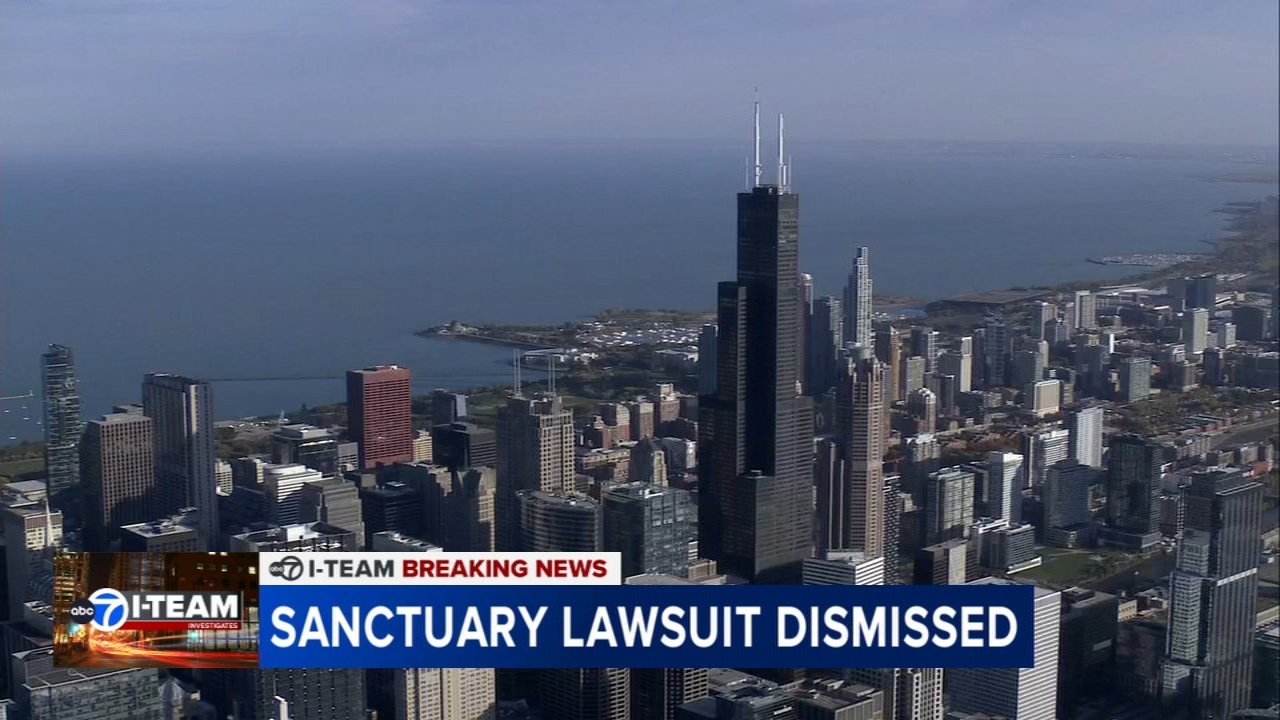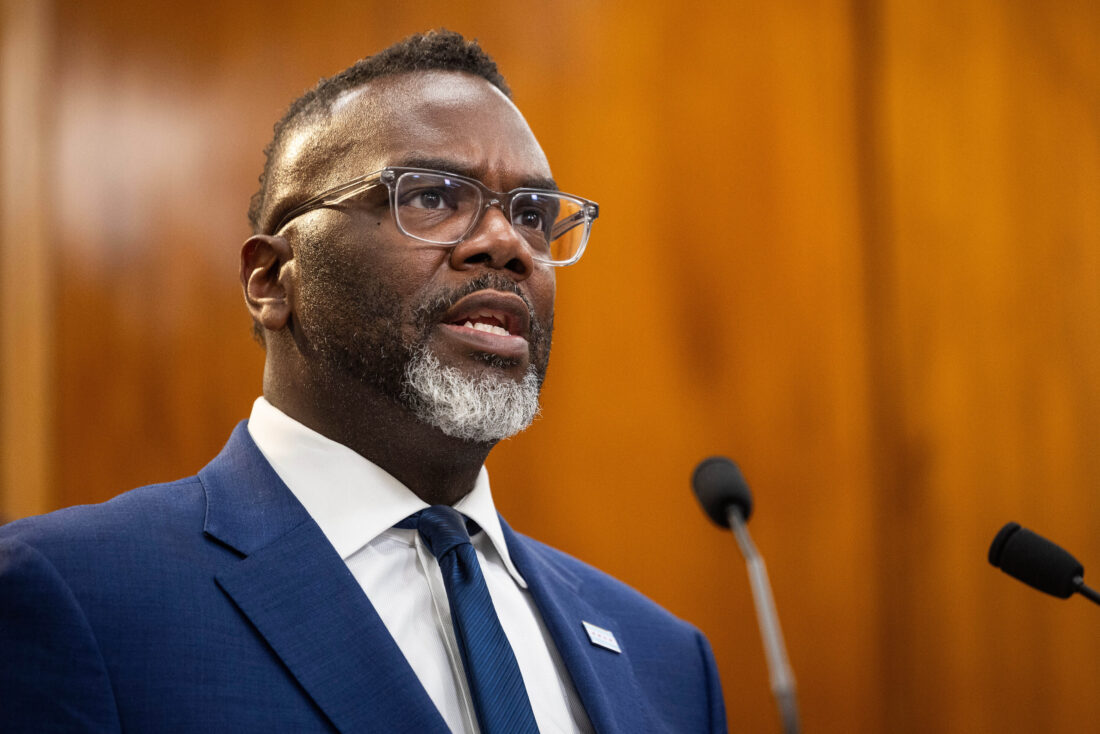Federal Judge Dismisses DOJ Lawsuit Against Illinois Sanctuary Policies

A U.S. District Judge has dismissed a lawsuit filed by the Trump administration's Department of Justice (DOJ) challenging Illinois, Chicago, and Cook County's sanctuary policies. Judge Lindsay Jenkins of the Northern District of Illinois ruled on July 25, 2025, that the DOJ lacked standing to sue the state and local officials over the policies, which limit cooperation with federal immigration enforcement.
The ruling is a victory for Illinois Governor J.B. Pritzker, Chicago Mayor Brandon Johnson, and Cook County Board of Commissioners President Toni Preckwinkle, who had defended their respective jurisdictions' sanctuary policies. The Trump administration has until August 22, 2025, to amend its lawsuit; otherwise, the dismissal will become final.
Judge Rules DOJ Lacked Standing in Sanctuary Policy Challenge

Judge Jenkins' decision centered on the DOJ's lack of standing to sue. The lawsuit, initially filed in February 2025, alleged that the sanctuary laws "thwart" federal efforts to enforce immigration laws. However, the judge found that the DOJ did not demonstrate sufficient harm to justify federal intervention.
The court also emphasized that the sanctuary policies reflect a decision by Illinois and its localities to not participate in enforcing civil immigration law. Judge Jenkins stated that this decision is protected by the Tenth Amendment and not preempted by the Immigration Nationality Act.
Chicago Mayor and Illinois Governor Celebrate Court Decision

Chicago Mayor Brandon Johnson lauded the court's decision, asserting that it "affirms what we have long known: that Chicago's Welcoming City Ordinance is lawful and supports public safety." Johnson emphasized that the city would not be compelled to cooperate with what he described as the Trump Administration's "reckless and inhumane immigration agenda."
Illinois Governor J.B. Pritzker echoed this sentiment, stating on social media, "Illinois just beat the Trump Administration in federal court." He highlighted that the court's decision upheld the state's TRUST Act, a bipartisan law providing statewide sanctuary protections.
Trump Administration Intends to Appeal Ruling on Sanctuary Cities

Despite the setback, a White House spokesperson indicated that the Trump administration plans to appeal the ruling. "We look forward to ultimate vindication on the issue," the spokesperson said, reaffirming the administration's commitment to challenging sanctuary policies nationwide.
The administration argues that sanctuary cities interfere with federal immigration enforcement and compromise public safety. This stance sets the stage for a continued legal battle over the balance of power between federal and state/local governments concerning immigration matters.
Background: The Rise of Sanctuary Policies in Chicago and Illinois
Chicago's history as a sanctuary city dates back to 1985, with the formal adoption of the Welcoming City ordinance in 2006. This ordinance, most recently amended in 2021, prohibits Chicago police officials from cooperating with federal immigration agents in most cases. In 2017, the city further solidified its sanctuary status, coinciding with then-Governor Bruce Rauner signing statewide sanctuary protections into law.
In 2020, the U.S. Supreme Court upheld a previous victory for Chicago defending its sanctuary city status, underscoring the city's long-standing commitment to limiting cooperation with federal immigration authorities.
Key Players in the Sanctuary City Legal Battle

The legal challenge involved several key stakeholders. The U.S. Department of Justice, under the Trump administration, served as the plaintiff, seeking to invalidate the sanctuary policies. The State of Illinois, the City of Chicago, and Cook County were the defendants, represented by Governor Pritzker, Mayor Johnson, and President Preckwinkle, respectively.
U.S. District Judge Lindsay Jenkins presided over the case. Advocacy groups like the ACLU of Illinois and the National Immigrant Justice Center supported Illinois and Chicago's sanctuary policies, arguing that they foster trust between immigrant communities and law enforcement.
Arguments For and Against Sanctuary Policies

The DOJ's lawsuit targeted state and local laws, including Chicago's "Welcoming City" Ordinance, the Illinois TRUST Act, and Cook County Ordinance 11-O73. These policies generally restrict cooperation between local law enforcement and federal immigration authorities, preventing local officers from assisting in federal immigration enforcement based solely on immigration status or in civil immigration cases without a federal criminal warrant.
Defenders of sanctuary policies argue that they encourage undocumented individuals to report crimes and cooperate with law enforcement, leading to stronger communities. Opponents contend that these policies hinder federal efforts to remove individuals who may pose a public safety risk and interfere with federal immigration enforcement.
Potential Impact and Future Developments in the Sanctuary City Debate

The Trump administration's intent to appeal the ruling signals that the legal battle over sanctuary policies is far from over. The decision could influence ongoing or future legal challenges against similar policies in other cities and states, including Los Angeles, New York City, Denver, and several New Jersey cities.
Previously, the Trump administration sought to revoke federal public safety grants from sanctuary cities. The impact of this ruling on such actions remains uncertain. The debate over sanctuary policies reflects a broader discussion about immigration enforcement and the relationship between federal and local authorities, with both sides presenting valid arguments regarding community trust and public safety.